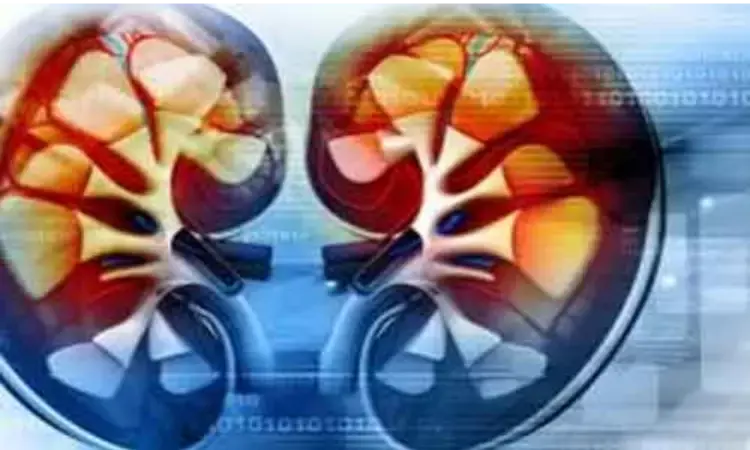- Home
- Medical news & Guidelines
- Anesthesiology
- Cardiology and CTVS
- Critical Care
- Dentistry
- Dermatology
- Diabetes and Endocrinology
- ENT
- Gastroenterology
- Medicine
- Nephrology
- Neurology
- Obstretics-Gynaecology
- Oncology
- Ophthalmology
- Orthopaedics
- Pediatrics-Neonatology
- Psychiatry
- Pulmonology
- Radiology
- Surgery
- Urology
- Laboratory Medicine
- Diet
- Nursing
- Paramedical
- Physiotherapy
- Health news
- Fact Check
- Bone Health Fact Check
- Brain Health Fact Check
- Cancer Related Fact Check
- Child Care Fact Check
- Dental and oral health fact check
- Diabetes and metabolic health fact check
- Diet and Nutrition Fact Check
- Eye and ENT Care Fact Check
- Fitness fact check
- Gut health fact check
- Heart health fact check
- Kidney health fact check
- Medical education fact check
- Men's health fact check
- Respiratory fact check
- Skin and hair care fact check
- Vaccine and Immunization fact check
- Women's health fact check
- AYUSH
- State News
- Andaman and Nicobar Islands
- Andhra Pradesh
- Arunachal Pradesh
- Assam
- Bihar
- Chandigarh
- Chattisgarh
- Dadra and Nagar Haveli
- Daman and Diu
- Delhi
- Goa
- Gujarat
- Haryana
- Himachal Pradesh
- Jammu & Kashmir
- Jharkhand
- Karnataka
- Kerala
- Ladakh
- Lakshadweep
- Madhya Pradesh
- Maharashtra
- Manipur
- Meghalaya
- Mizoram
- Nagaland
- Odisha
- Puducherry
- Punjab
- Rajasthan
- Sikkim
- Tamil Nadu
- Telangana
- Tripura
- Uttar Pradesh
- Uttrakhand
- West Bengal
- Medical Education
- Industry
Patients of Intracerebral hemorrhage at higher risk of acute kidney injury: Study

COLUMBIA - Researchers from the University of Missouri School of Medicine and MU Health Care have found that patients who suffer an intracerebral hemorrhage (ICH) face an increased risk of acute kidney injury (AKI) during their hospitalization. AKI can lead to sudden kidney failure, kidney damage or even death.
They determined which ICH patients are at the highest risk for this kidney injury so doctors can take precautions to prevent it. They also examined how the commonly-used blood pressure lowering drug nicardipine contributes to AKI. The findings of the study have been published in the journal Stroke.
The study was conducted to find rates and predictors of acute kidney injury (AKI) and renal adverse events in patients with intracerebral hemorrhage.
"Over the past five years, clinicians have been concerned about AKI as they see patients who present with ICH, then develop kidney failure and require dialysis," said lead researcher Adnan I. Qureshi, MD, a professor of clinical neurology at the MU School of Medicine. "What we need is a more global body approach to improve the outcome of patients with ICH, rather than just focusing on the brain."
Qureshi's team analyzed data from a multicenter trial in which 1,000 ICH patients with systolic blood pressure above 180 to either intensive (110-139 mm Hg) blood pressure reduction or standard (140-179 mm Hg) reduction within 4.5 hours after symptoms started. Researchers identified AKI by taking creatinine blood samples -- which show how well the kidneys are functioning -- from each patient for three days. They found 15% of all patients developed AKI, higher doses of nicardipine were linked to an increased risk for AKI, and a higher baseline serum creatinine level was associated with a greater risk for AKI. In addition, those with AKI were nearly three times more likely to die within three months of diagnosis.
"Even the initial set of labs seem to have predictive value in who will develop AKI, and I think this study highlights the values doctors can use to actually determine who may be at risk," Qureshi said. "What we thought was an isolated brain disease, is not necessarily the case."
Qureshi believes the next step in preventing AKI after ICH is to use serum creatinine and other markers to identify high-risk patients, then use proactive measures to carefully manage intravenous fluids and avoid medications that are more likely to cause or worsen AKI.
for further references log on to:
Dr Kamal Kant Kohli-MBBS, DTCD- a chest specialist with more than 30 years of practice and a flair for writing clinical articles, Dr Kamal Kant Kohli joined Medical Dialogues as a Chief Editor of Medical News. Besides writing articles, as an editor, he proofreads and verifies all the medical content published on Medical Dialogues including those coming from journals, studies,medical conferences,guidelines etc. Email: drkohli@medicaldialogues.in. Contact no. 011-43720751


